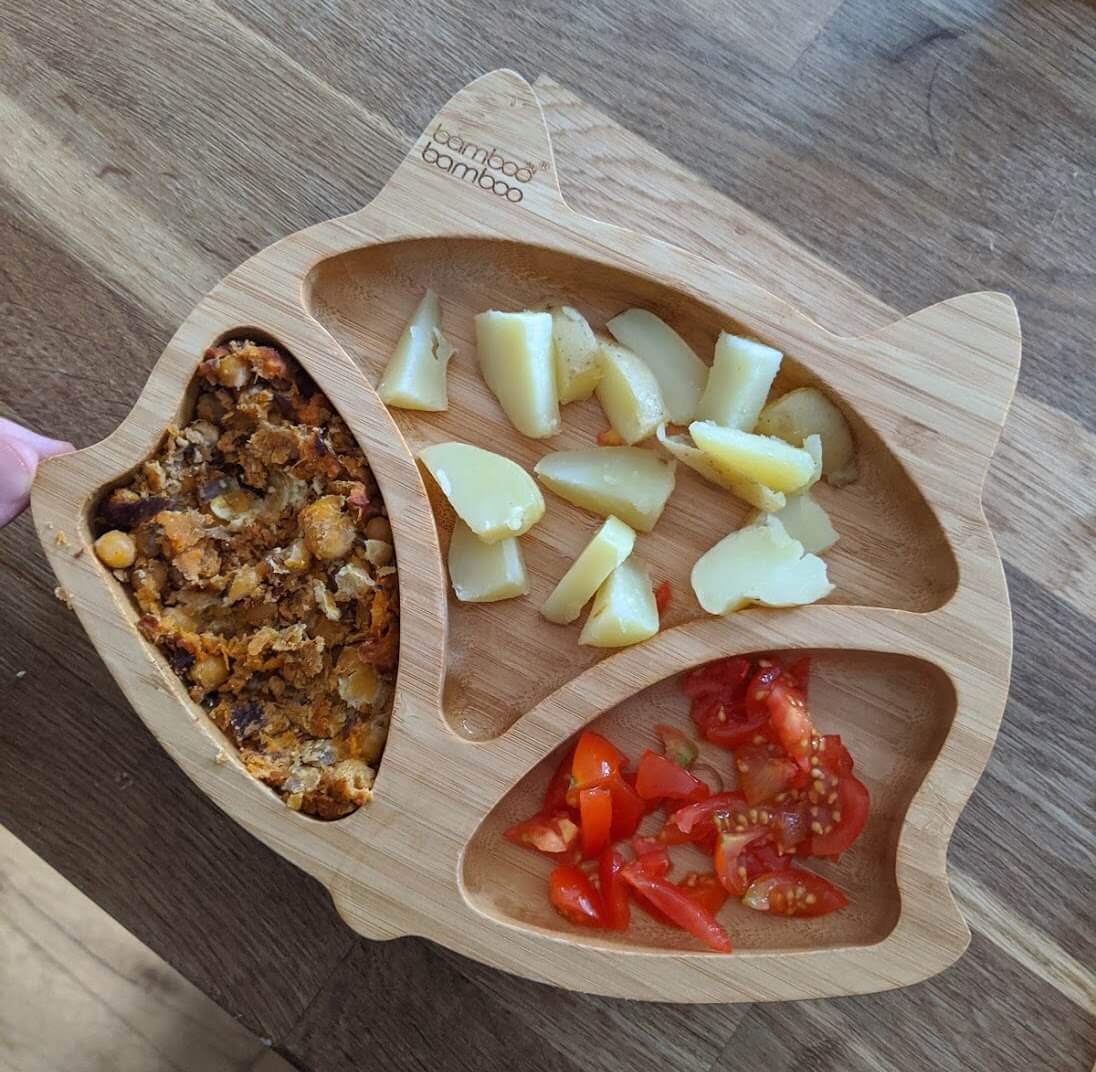Is it healthy to raise your child vegan?
Posted on: 3 June 2021
Caveat: I am not a dietician or nutritionist. Below is simply my experience and knowledge on the subject. If you have concerns relating to your child's diet, please seek help from a professional.
I'd pondered the question "is it healthy to raise your child vegan?" since my son Brandon came into the world. I'd been vegan myself a year at the time and knew it was right for me. But I felt some societal pressure and, dare I say, a "stigma" against feeding your child a strict vegan diet.
There's plenty of schools of thought on this one. Are you denying them the full gamut of food available to humans? Crucially, are you denying them the nutrition they require when growing? Even though I myself had done a fair amount of research on the matter with regards my own nutrition—and been more than satisfied with my findings—I still felt a niggle of doubt when it came to baby weaning.
The decision
To cut a longer story short, we're almost a year into weaning Brandon now, and I can confidently say, vegan baby weaning has worked fantastically for us and Brandon, and I couldn't be happier with our choice. Above all, I was able to reach the realisation that feeding Brandon plants was and is the most natural thing in the world.
We already know plants are healthy, and I know from my own research which foods contain which nutrients to ensure a varied and plentiful supply. The rest was coming to the conclusion that whatever diet you force upon your child (as it is somewhat belligerently referred to), you are making a decision for them. Is it right for them to eat meat? Is it right to deny them eating any animal products? That is your decision as parents to make, and, eventually, theirs to decide for themselves when they are ready.
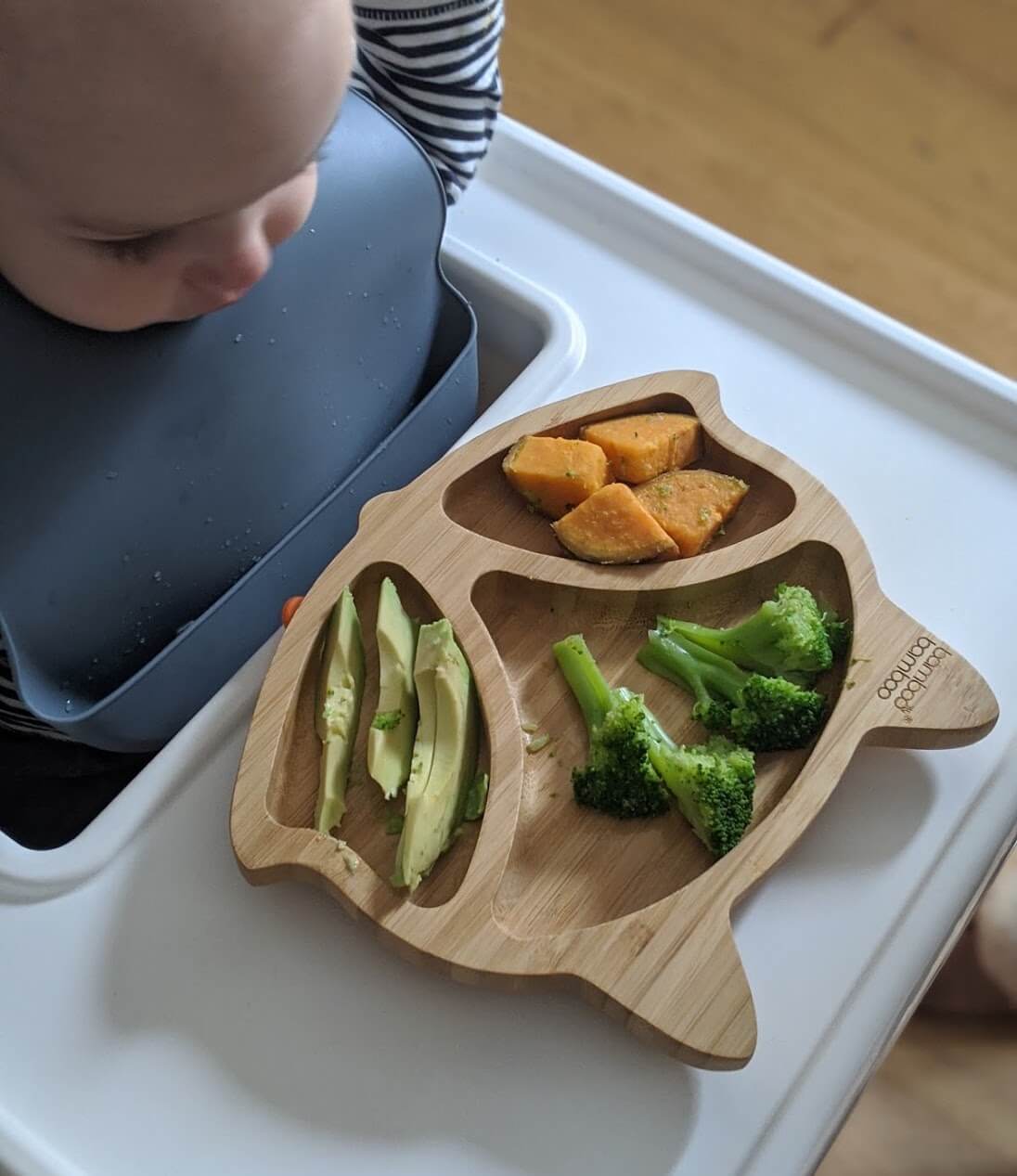
Brandon's diet
Brandon loves his food, has a varied diet, and appears a healthy 18-month old boy. For the most part he's been fed an exclusively plant-based diet, and we intend to keep it that way until a situation arises that may require a reevaluation. The key for us is not to be overly dogmatic about it. Now's he's essentially eating what we are eating, it doesn't make sense from a practical or logical standpoint to add any meat, fish or dairy to his diet.
He loves bread, and enjoys an array of other carbs - rice, potatoes, pasta, oats. He has a mixed relationship day-to-day with veg; loves his broccoli and peas but won't touch spinach or mushrooms. Protein-wise, we try to keep it varied. He enjoys beans and lentils, when disguised in a sauce. He'll tolerate a chickpea one day then have more fun throwing them the next. Nut butter is a favourite; on toast, on porridge, or on its own. He loves most fruit, especially banana and strawberries.
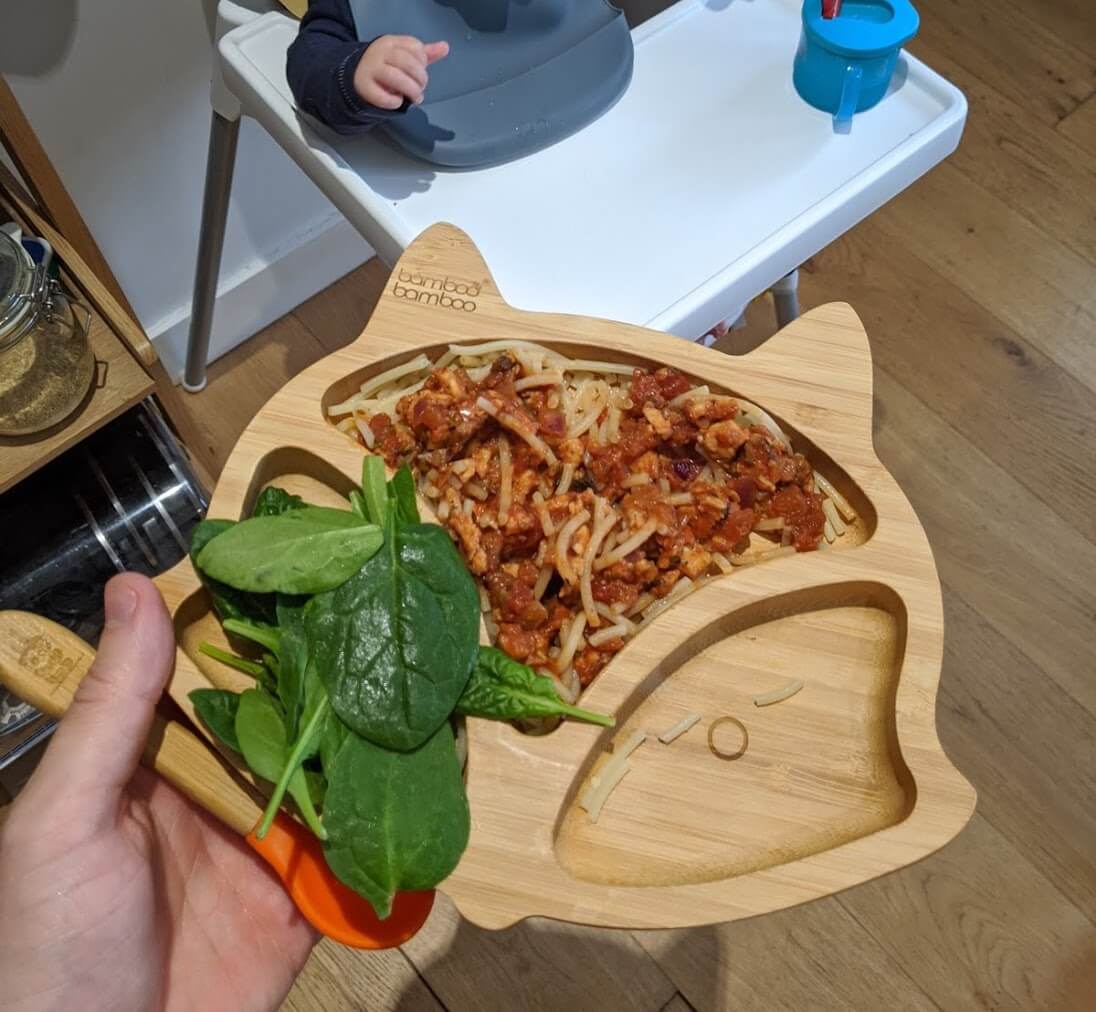
What about fake meat?
Given how new a lot of vegan "meat" is, there's a valid conversation to be had of its long term benefits or drawbacks. Do we feed Brandon fake meat? Yes, mostly because we eat it ourselves. It's a good, protein-rich, convenient food to add to your diet. When balanced with whole-food sources of protein, we believe and trust it to be a perfectly healthy food.
Conversely, processed meat has rightfully been under scrutiny for decades, and yet it is still considered a safe and (as part of a balanced diet) healthy food to feed children. We're now seeing clear links between a heavily processed diet and obesity, and in this scenario, meat alternatives are often framed as a healthier alternative. Quorn in particular have started promoting this angle in their recent campaigns.
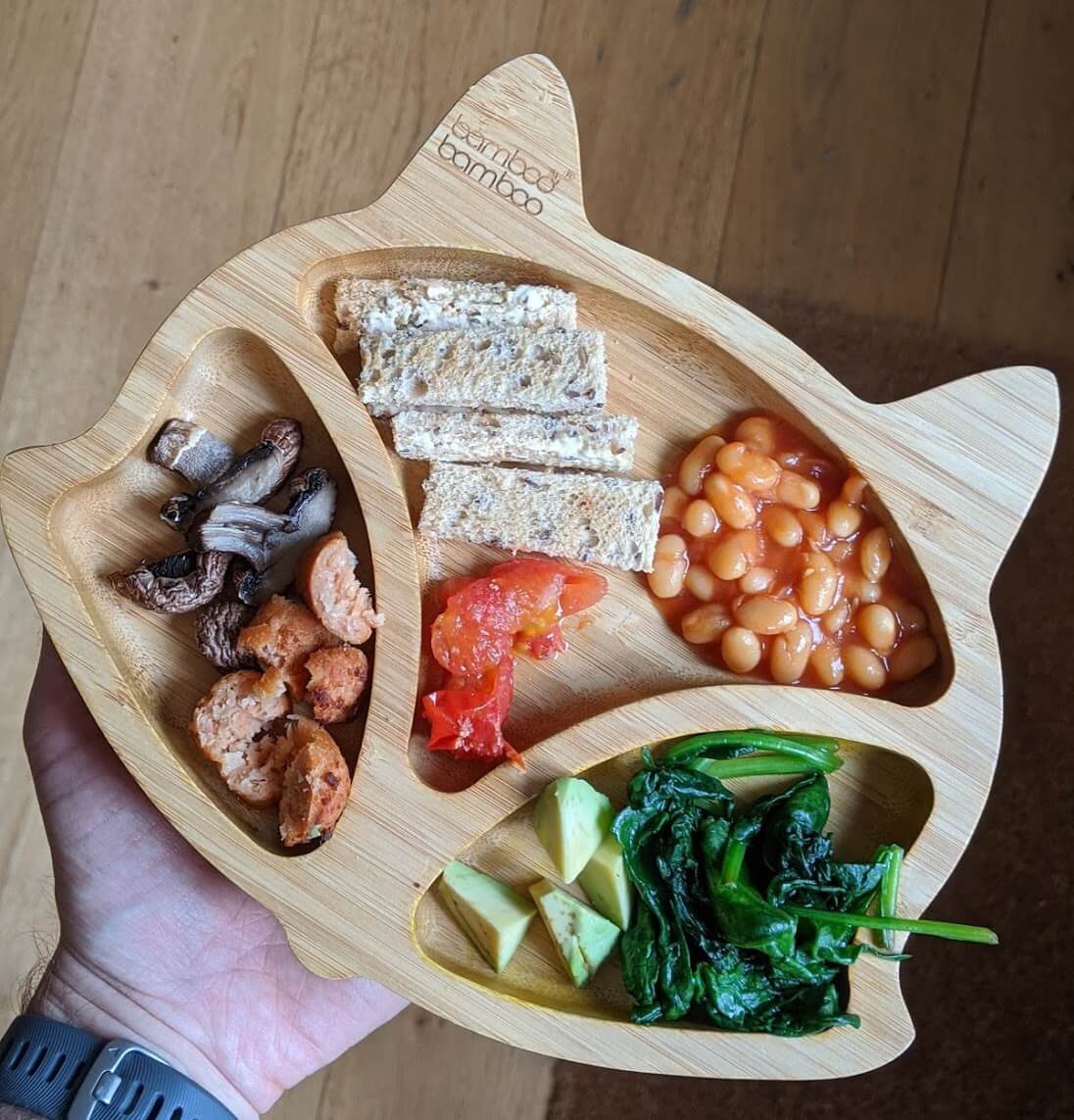
Supplements
We feed Brandon vitamin D drops in his water. Vitamin D is needed to maintain healthy bones, teeth and muscles. Fortified soya milk is also a good source of vitamin D, as well as calcium.
We are considering Omega 3 supplements. He already has a diet consisting of linseed, hemp seeds and chia seeds, but there are certain Omega 3 fatty acids that you can't get from plants. ALA, one of the essential fatty acids our body needs, is plentiful in nuts and seeds as well as cruciferous vegetables. However EHA and DHA is generally only found in fatty fish. Your body can convert ALA to EHA and DHA, but it's not very efficient at doing so.
The best way to ensure you're getting the right essential fatty acids (and in particular EHA and DHA) as a vegan is to supplement with algal oil. Algae is the reason fish contain omega-3, as it's their food source; but we can skip the fish step and go direct by taking supplements in the form of soft capsules. I have started taking Omega 3 supplements recently, and although we're not currently supplementing Brandon's diet, it's useful to know how easy it is to get your recommended intake.
Brandon has B12-fortified foods in the form of nutritional yeast and soy milk. In the past month, we have weaned him off breastmilk completely and on to a fortified soy milk (Alpro do a good one for little ones), which he has and enjoys most days.
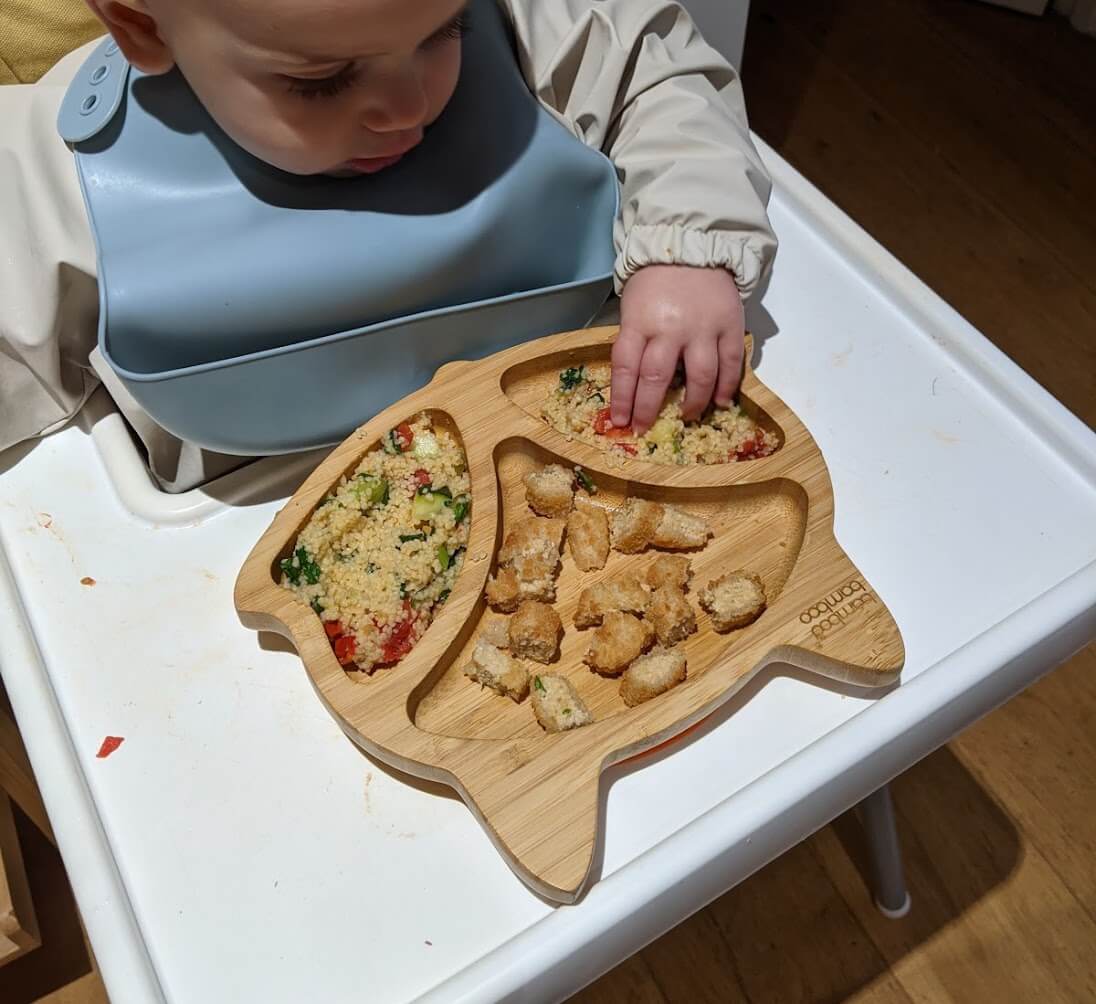
Conclusion
If you yourself are vegan, you have likely done some research into the health benefits and risks of a diet free of animal products. This knowledge already puts you ahead of the average parent in deciding what's best for your child. You likely already know where to get the nutrients you need to thrive; information which will give your baby the best start possible in life when weaning onto solid food.
The Standard American Diet (SAD) diet (also known as the Standard Western Diet) is well established to be not an overly healthy one. Cultural norms exist around feeding this diet to children, which in turn stigmatises deviation from this age-old way of eating. But I implore any parent to question what they're putting on their children's plates, and not to simply accept the status quo as healthy.
